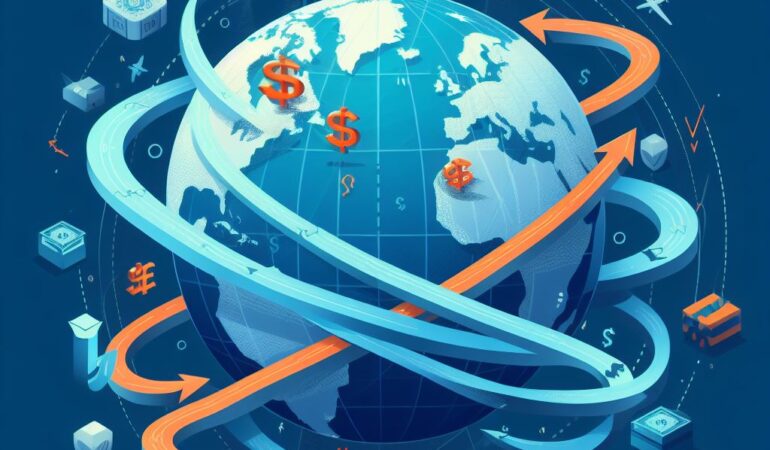Are you tired of losing money on exchange expenses? Look no further. This article will reveal efficient strategies for minimizing those costs.
By utilizing research, comparison, and local currency, you can avoid unnecessary fees. Say goodbye to dynamic currency conversion and hidden charges.
It’s time to take control of your finances and make smarter decisions when it comes to exchanging your money. Let’s dive in and start saving!
Key Takeaways
- Research current exchange rates and analyze trends to make informed decisions
- Compare different exchange providers to find favorable rates and services
- Consider using the local currency when traveling abroad to avoid double conversion fees and benefit from better rates
- Avoid dynamic currency conversion to minimize expenses and confusion
Research Exchange Rates
When minimizing exchange expenses, start by researching current exchange rates. This step is crucial in ensuring that you make informed decisions and get the most value out of your currency exchange. Exchange rates constantly fluctuate due to various factors such as economic indicators, political events, and market trends. By staying up-to-date with these rates, you can identify favorable times to exchange your money and avoid unnecessary losses.
To research exchange rates effectively, utilize reliable sources such as financial websites, currency exchange platforms, and reputable banks. These sources provide real-time information and allow you to compare rates from multiple providers. Analyze the trends and historical data to understand the patterns and fluctuations in exchange rates. This will enable you to make well-timed transactions and minimize the impact of unfavorable rates.
Furthermore, consider using online currency converters and apps that provide up-to-date exchange rate information. These tools can help you quickly calculate the value of your currency in different countries and make informed decisions on when and where to exchange your money.
Compare Exchange Providers
To minimize exchange expenses, compare different exchange providers to find the most favorable rates and services. It’s important to do your research and compare multiple providers before making a decision. By doing so, you can ensure that you are getting the best deal and minimizing any unnecessary costs.
To help you in your comparison process, here is a table that outlines some key factors to consider when evaluating exchange providers:
| Factor | Provider A | Provider B | Provider C |
|---|---|---|---|
| Exchange Rate | 1.25 | 1.30 | 1.28 |
| Transaction Fee | $5 | $10 | $8 |
| Transfer Time | 2-3 business days | Same day | 1-2 business days |
| Customer Reviews | 4.5/5 | 3.8/5 | 4.2/5 |
| Additional Services | Mobile App | 24/7 Customer Support | No transfer limit |
In this example, Provider B offers the highest exchange rate at 1.30, but they also charge a higher transaction fee of $10. Provider A has a slightly lower exchange rate but a lower transaction fee of $5. Provider C falls in the middle with a slightly higher exchange rate of 1.28 and a transaction fee of $8.
Additionally, you should consider other factors such as transfer time, customer reviews, and additional services. By comparing these factors, you can make an informed decision and choose the exchange provider that best suits your needs.
Use Local Currency
To minimize exchange expenses, you should consider using the local currency. When traveling abroad, it can be tempting to convert your money into the currency of your destination ahead of time. However, this approach can often result in higher exchange rates and additional fees. Instead, opting to use the local currency can help you save money and make your transactions more efficient.
Here are three reasons why using the local currency is a smart choice:
- Avoiding double conversion fees: When you convert your money twice, first into the local currency and then back into your home currency, you may incur fees for each conversion. By using the local currency directly, you can avoid these unnecessary expenses.
- Benefiting from better exchange rates: Local merchants and businesses often offer more favorable exchange rates when you pay in their currency. This can lead to significant savings, especially for larger purchases or frequent transactions.
- Streamlining transactions: Using the local currency eliminates the need for mental calculations and confusion caused by constantly converting prices. It simplifies the process and allows for smoother transactions, ensuring you pay the correct amount.
Avoid Dynamic Currency Conversion
Using dynamic currency conversion should be avoided to further minimize exchange expenses.
Dynamic currency conversion is a service offered by merchants and ATMs that allows you to pay for goods or services in your own currency instead of the local currency. While it may seem convenient, it often comes with high fees and unfavorable exchange rates.
When you choose dynamic currency conversion, the merchant or ATM provider sets the exchange rate, which is typically much higher than the market rate. This means that you end up paying more for the transaction than necessary. Additionally, there may be additional fees charged by the merchant or your card issuer for using this service.
To avoid these unnecessary expenses, it’s recommended to always pay in the local currency. By doing so, you can take advantage of the more favorable exchange rates provided by your card issuer or bank. You can also avoid any additional fees that may be associated with dynamic currency conversion.
Furthermore, it’s important to be aware of the potential for confusion when using dynamic currency conversion. The exchange rate provided may not be clear or transparent, making it difficult to accurately assess the cost of the transaction. By paying in the local currency, you can have a better understanding of the amount you’re being charged.
Be Mindful of Hidden Fees
Watch out for sneaky charges when it comes to exchanging currencies. Hidden fees can quickly add up and eat into your exchange budget, so it’s important to be mindful and take steps to minimize them.
Here are three strategies to help you avoid these hidden fees:
- Research exchange rates: Before making any currency exchange, take the time to research and compare the rates offered by different providers. Some banks and exchange services may advertise low fees but have unfavorable exchange rates, resulting in hidden costs. By comparing rates, you can find the most cost-effective option and avoid unnecessary charges.
- Read the fine print: Many exchange services and credit card companies may have hidden fees buried in their terms and conditions. Take the time to read the fine print and understand any potential charges before making a transaction. Look for any fees related to ATM withdrawals, foreign transactions, or currency conversion. Being aware of these fees upfront can help you make informed decisions and avoid unexpected costs.
- Use fee-free options: Look for fee-free options when exchanging currencies. Some banks offer fee-free ATM withdrawals or have partnerships with international banks that waive fees. Additionally, consider using a credit card that doesn’t charge foreign transaction fees. These fee-free options can help you save money on hidden charges and keep more of your hard-earned money.
Frequently Asked Questions
How Do I Find the Best Exchange Rate When Traveling to a Foreign Country?
To find the best exchange rate when traveling to a foreign country, research multiple banks and exchange services. Compare their rates and fees. Additionally, consider using credit cards with no foreign transaction fees for convenient and cost-effective currency conversion.
Are There Any Additional Fees or Charges When Withdrawing Money From Foreign Atms?
When withdrawing money from foreign ATMs, there may be additional fees or charges. For example, some banks charge a foreign transaction fee or an ATM fee. These expenses can significantly impact your exchange expenses.
Should I Exchange Currency Before My Trip or Wait Until I Arrive at My Destination?
You should exchange currency before your trip or wait until you arrive at your destination. Consider factors such as exchange rates, fees, and convenience to determine the most cost-effective and efficient approach.
What Are the Benefits of Using a Credit Card for Foreign Transactions Instead of Cash?
Using a credit card for foreign transactions instead of cash has several benefits. You can avoid carrying large amounts of cash, enjoy better exchange rates, and have the convenience of easy tracking and protection against fraud.
Are There Any Specific Countries or Regions Where Dynamic Currency Conversion Is More Common or Prevalent?
In certain countries or regions, dynamic currency conversion is more prevalent. It’s important to be aware of this when using your credit card for foreign transactions. Research and plan accordingly to minimize exchange expenses.




